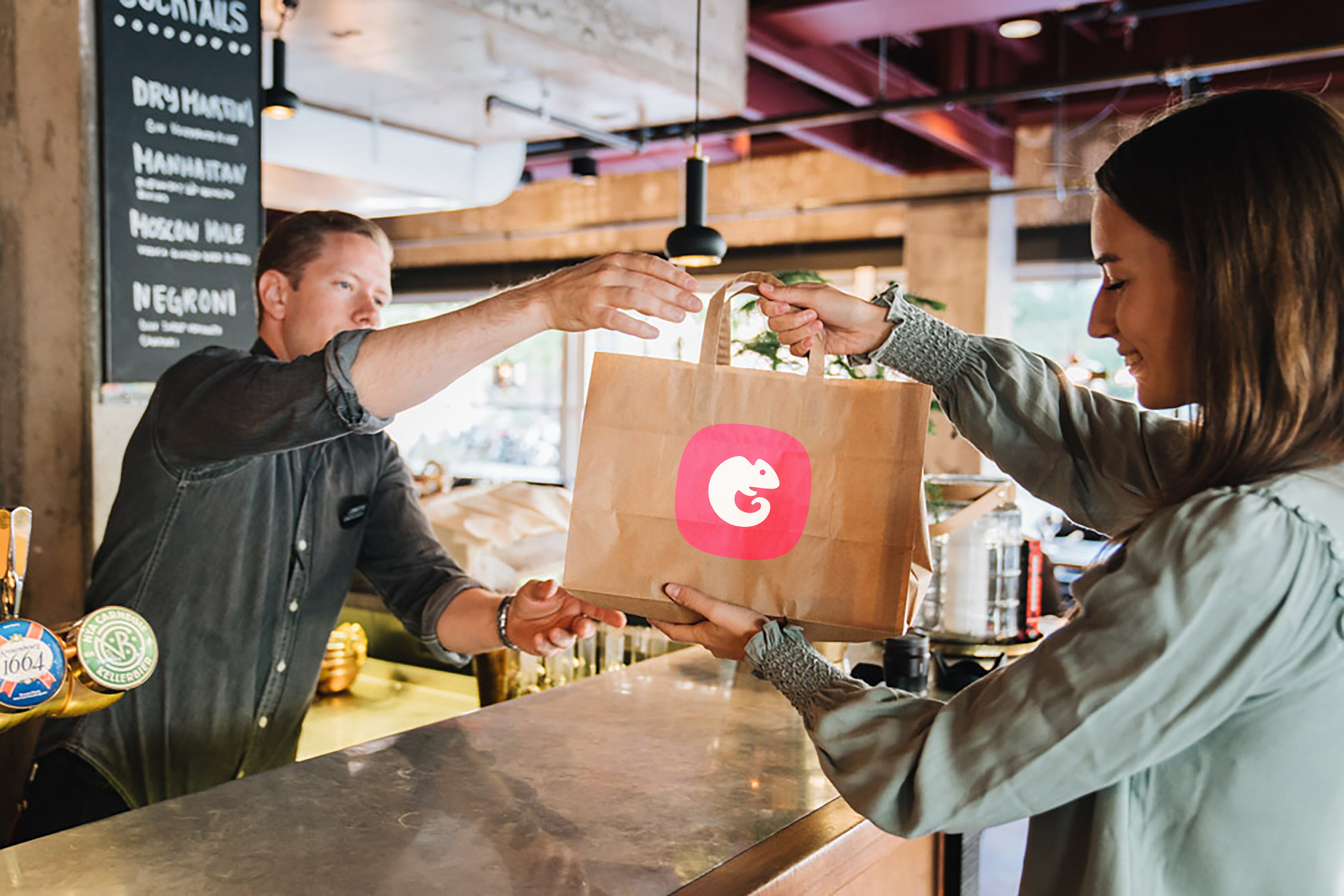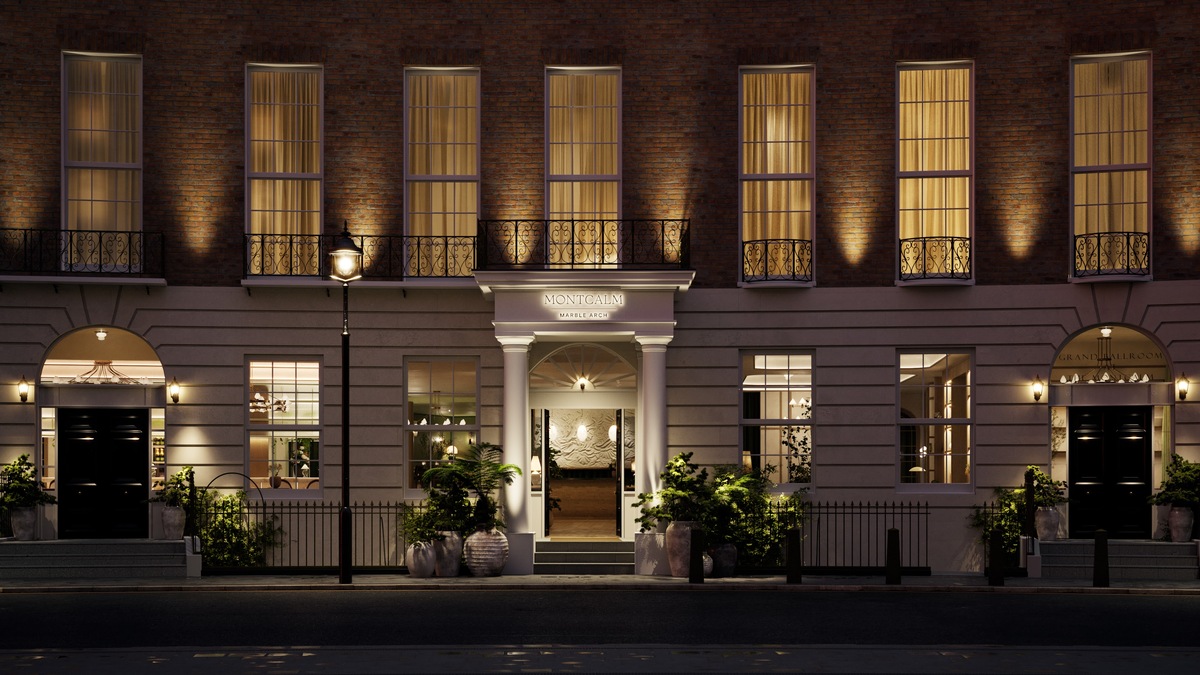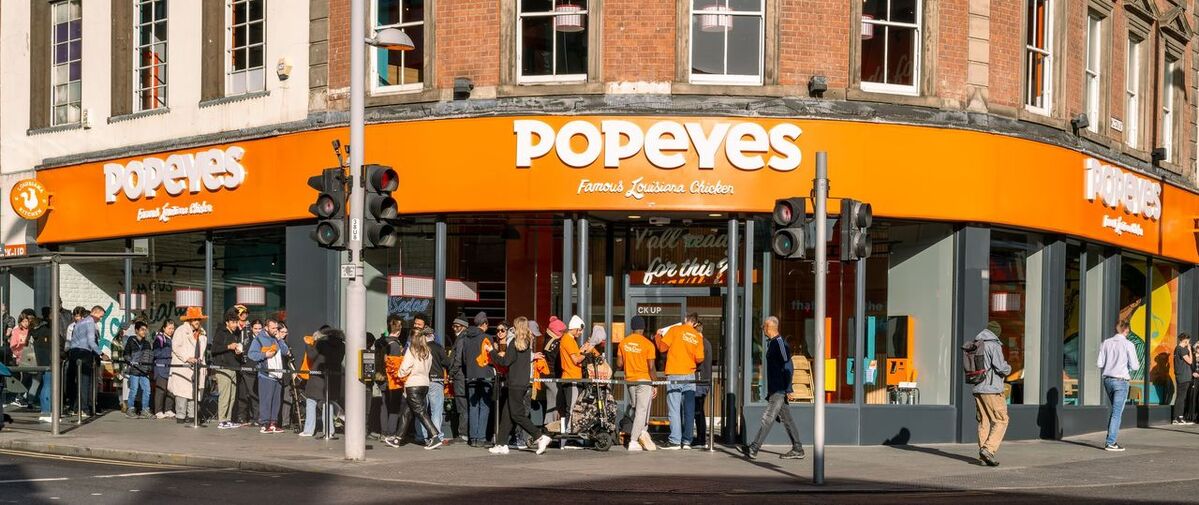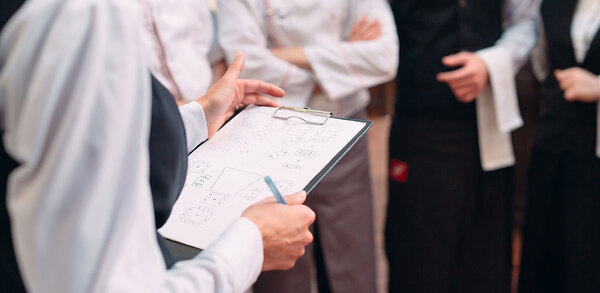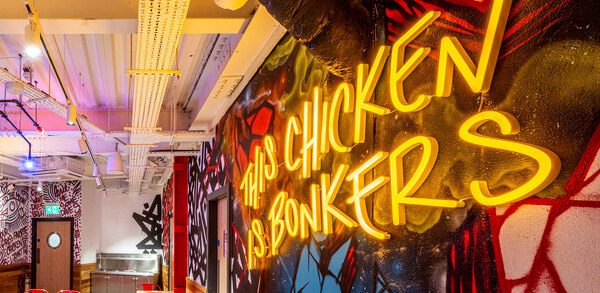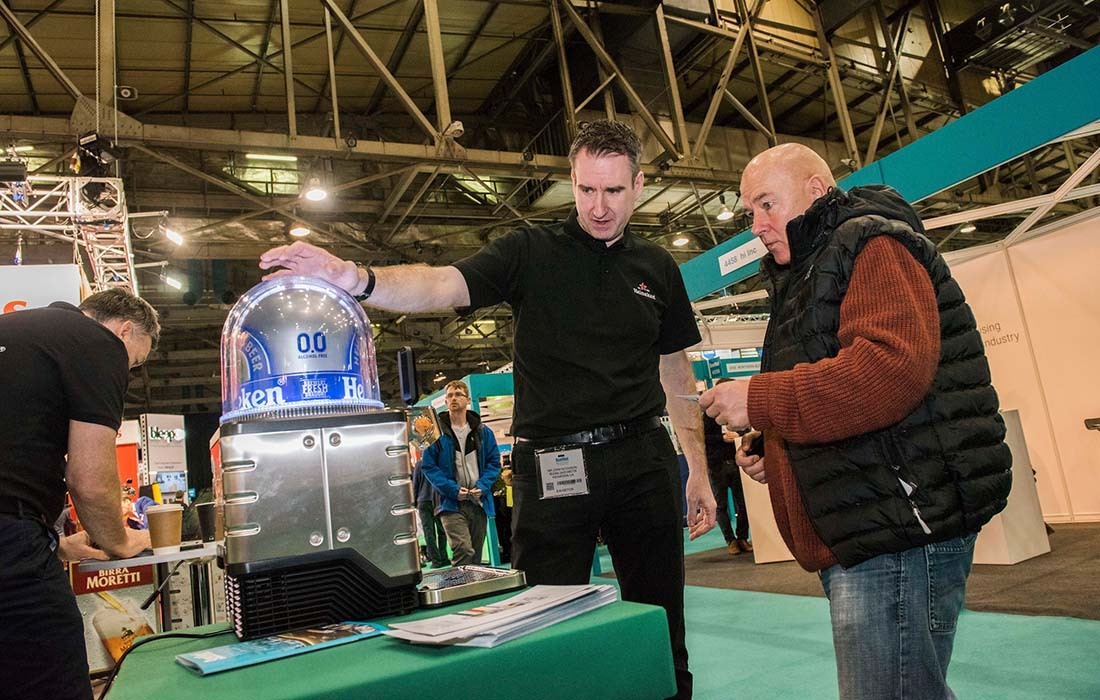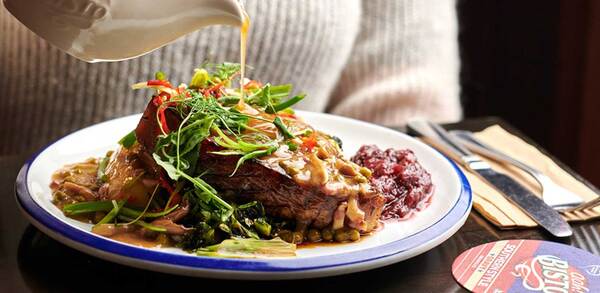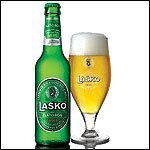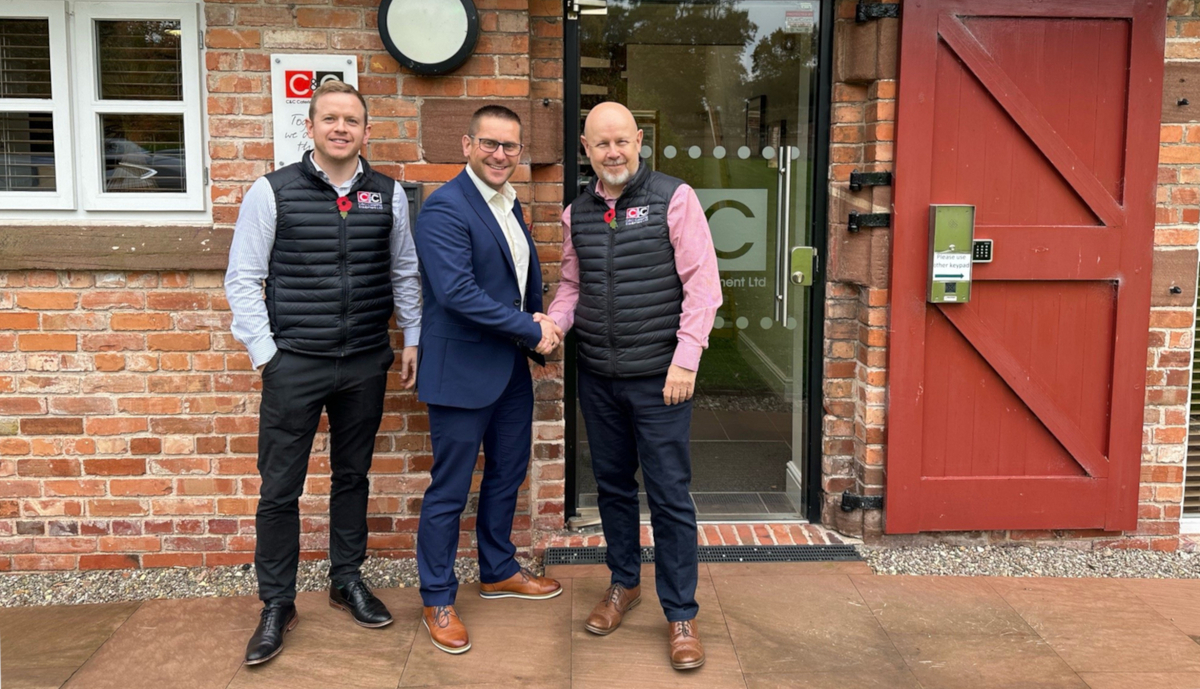Waste not, want not: technology to help reduce food waste
Sustainability might not be top of operators’ minds when it comes to a coronavirus recovery plan, but reducing food waste will cut costs, and some technology solutions can even generate extra revenue. Glynn Davis discovers the tech that can make a difference.
Restaurants and other foodservice operators want it, customers are very keen on it, and the UN and UK government have put in place directives to address it – not forgetting that the planet definitely needs it. We are talking about reducing food waste and improving the sustainable practices of the hospitality industry.
Covid-19 might have temporarily halted the sustainability plans of some companies, but there is a healthy 59% who have a strategy in place to help them reduce their carbon emissions, according to a survey by YouGov for World Kinect Energy Services, which is working towards the UK’s net zero target by 2050.
Although the survey also found 47% of businesses regard increased costs as a barrier to making progress towards hitting their sustainability targets, this is misplaced when it comes to food waste. A variety of technology solutions have emerged to help food operators cut the amount of produce that gets thrown into the bin, which do not have a negative impact on finances.

Jamie Crummie, co-founder of Too Good To Go, says: “No business makes a profit from food surplus – it’s all about recovering some costs.” His business certainly helps them do this. It was initially aimed at buffets and restaurants, and has since been broadened out to involve contract caterers and events organisers. They are able to list their surplus food items on the Too Good To Go app at a heavily discounted price to end customers, who collect purchases directly from outlets – rather like a click-and-collect proposition.
No business makes a profit from food surplus – it’s all about recovering some costs
Businesses pay an annual subscription fee and an admin charge – equating to 25% of each transaction. It has attracted 6,500 UK food providers since launching in 2016 and for specific businesses the app is a natural solution for dealing with surplus food – notably grab-and-go operators, including Greggs and Costa, whose products are in finished, ready-to-eat form.
“It’s an obvious solution for them as their businesses are about window displays to attract people in, which means there needs to be full shelves at all times, but this leads to waste,” he explains.
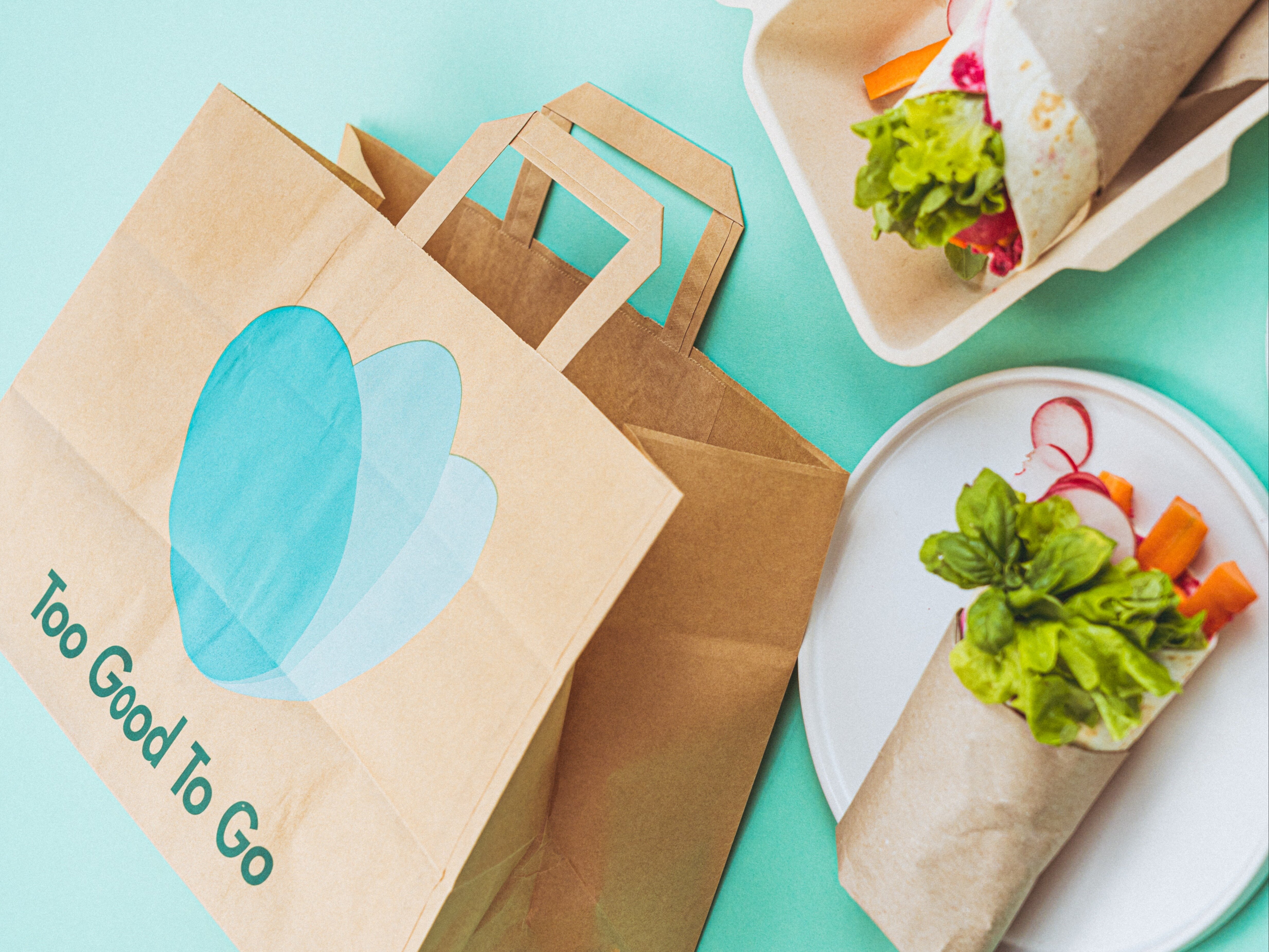
Over time Too Good To Go has worked with more restaurants and pubs – including Yo! , Chop’d, Frankie & Benny’s, Greene King (see below) and Chiquito, as well as the two-Michelin-starred Whatley Manor in Malmesbury, Wiltshire, which has been running a pop-up store called the Green House. These operators’ surplus items listed on the app are just as likely to be ingredients, rather than food in its finished form.
“The consumer could take home a variant of a meal kit, while other items might be cooked. It’s a different experience and the platform allows for this flexibility with its partners. If we’re true to our mission then we need to work with all types of businesses,” says Crummie.
It’s the same philosophy at Olio. The app began as a neighbour-to-neighbour food sharing platform whereby individuals list any unwanted foods and ingredients for free on the app. Local people accept the items online and collect.
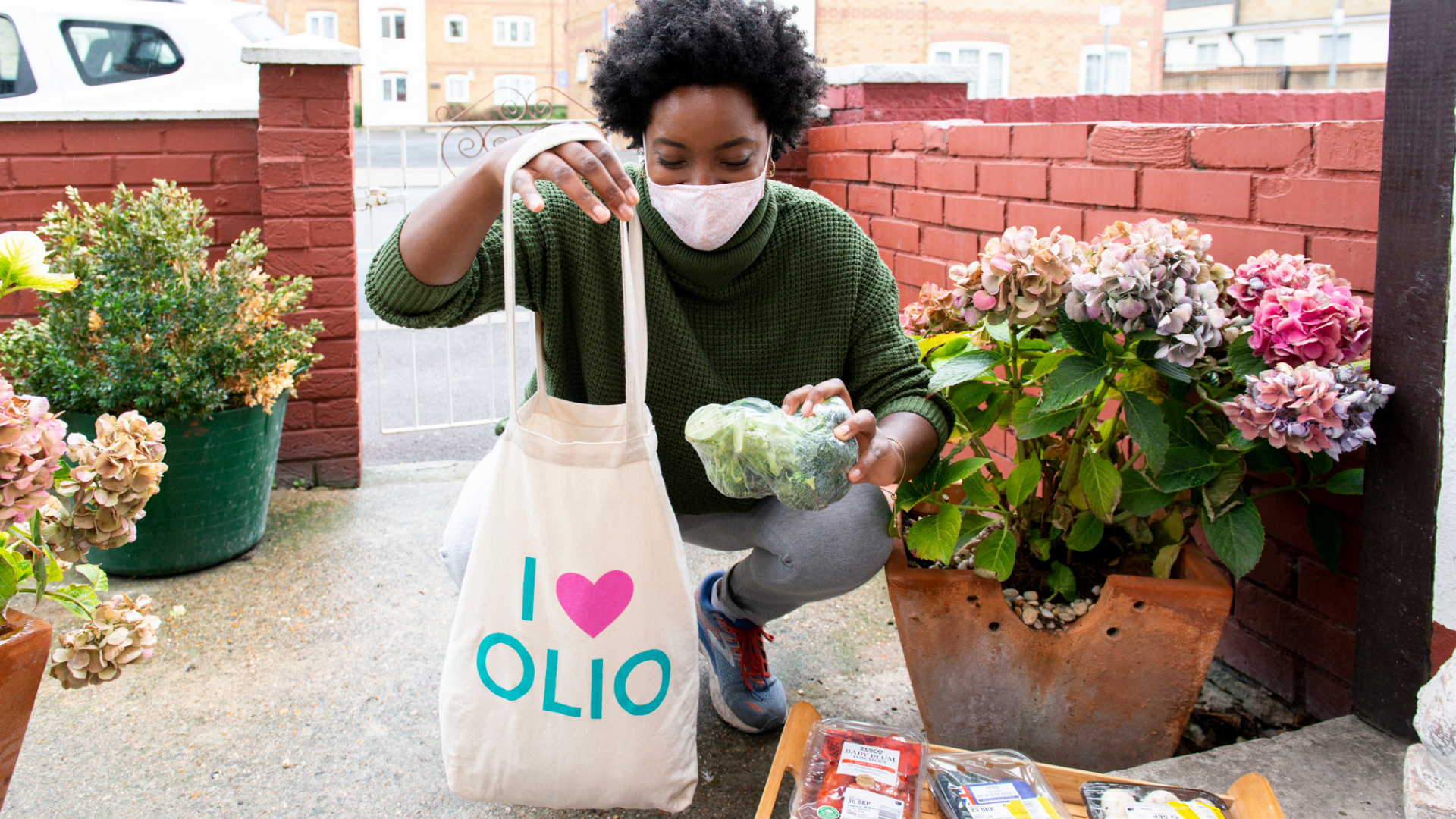
In addition, Olio has been building out its Food Waste Heroes division. FWH volunteers (who number 12,000) collect surplus food from restaurants, caterers, event organisers and food retailers, including the likes of Tesco, Elior, Compass, Pret A Manger and Planet Organic. The volunteers list the items on the app and distribute them to local people with no money changing hands.
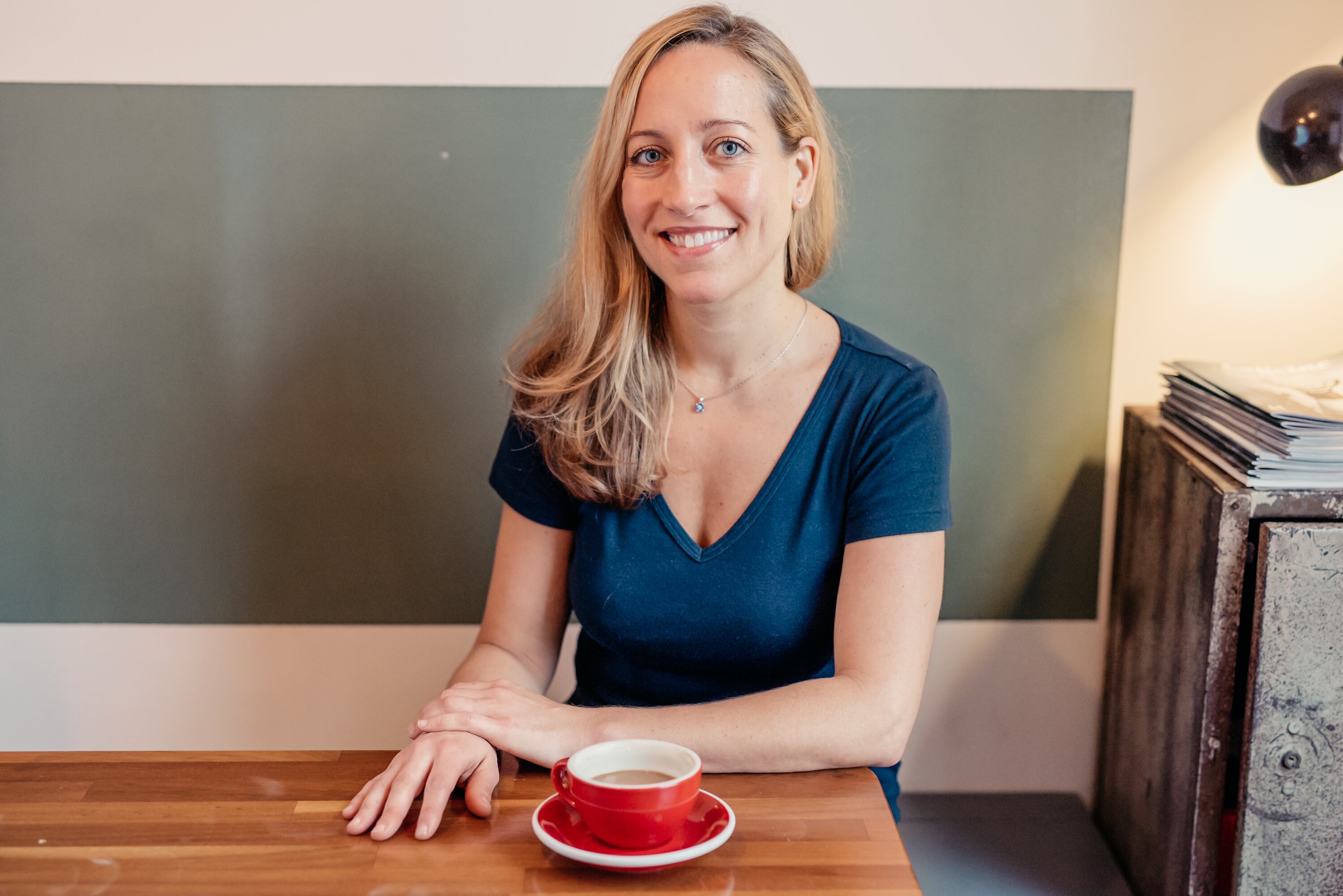
Larger businesses are charged a small fee for listing their items on the Olio app, while restaurants and independents can use the self-managed service that involves no listing costs. Although the focus to date has been on larger players, Saasha Celestial-One, co-founder at Olio, says “no food should be wasted” and so even those restaurants that cook entirely from scratch and with very little waste could still look to use Olio.
“If there are more than five meals wasted per day, then it’s worth it. If a local restaurant can find a [FWH] volunteer on the same street as them, they should list their surplus food – maybe not every day, but for certain days. They would then be able to share the food in the community,” she says.
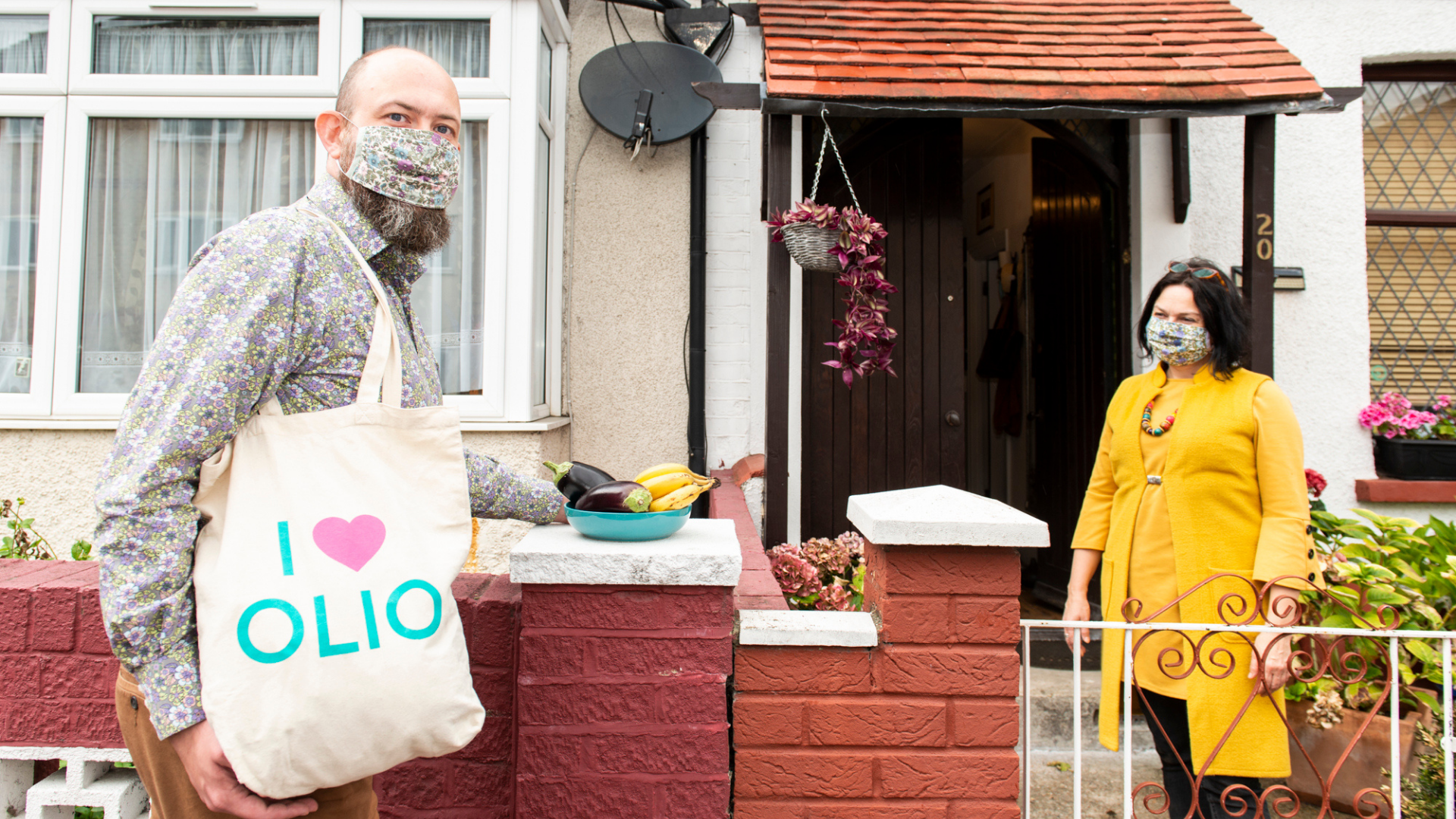
According to Celestial-One, tying up with Olio can form part of the brand-building of a business, helping to improve its reputation with employees and customers. In a survey between Olio and Pret A Manger, it was found that 80% of people would be more likely to shop at the chain as a result of it working with the likes of Olio.
Because the platform offers free food to the end customer, it is very effective at clearing out goods with a very short shelf life (and limited, or even zero, resale value), but it does charge listing fees to its food company partners. It is therefore most effective when used alongside the revenue-driving solutions in the market, which involve surplus food being sold to customers.
“None of these other apps, like Too Good To Go and Karma, are able to get rid of all surplus food, so by using these apps a company can offset the cost of using Olio,” says Celestial-One.
Learning from mistakes
Clearly the most effective way to reduce food waste – while still having sufficient produce for customers – is to prepare the optimum amount in the first place. Food waste app Karma works in a similar way to Too Good To Go – selling surplus food at the end of a restaurant’s service at a 50% discount – and also has a strong focus on gathering knowledge about what food goes through its app in order to develop a predictive capability it can share with its partners.
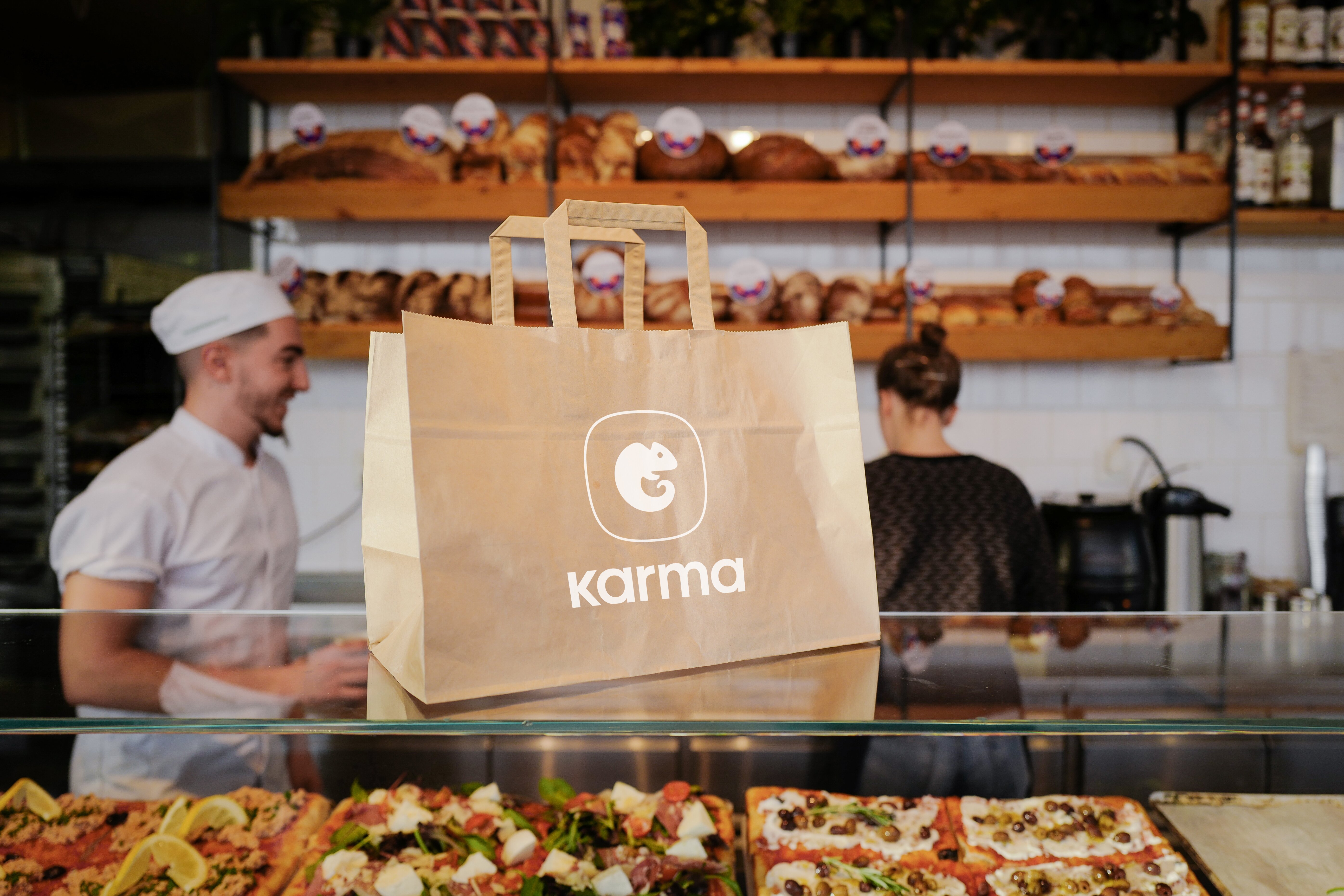
Charlie Humphries, UK marketing manager at Karma, says: “We can build up the data and show them they ‘wasted’ this item frequently. We could say to a bakery that they waste x amount of a particular product when it rains, so produce much less on those [rainy] days.” Although he suggests that if Karma is true to its mission then its goal is to ultimately engineer itself out of existence – through its predictive capabilities – Humphries acknowledges food waste from the bigger chain restaurants will never be fully eradicated. Despite this, the company has been delivering some powerful results for its hospitality partners (see below).
Winnow is another technology solution building up its capabilities to help hospitality companies predict demand and thereby reduce waste. The solution involves electronic weighing scales with a connected camera and touchscreen that precisely monitors items thrown into the bin.
It is a software-as-a-service solution with a monthly fee based on kitchen size. Initially it has worked with businesses that predominantly prepare food in advance, including hotels such as Accor and Hilton, cruise ships, contract caterers like Compass and Ikea’s restaurants, covering 1,300 kitchens in 40 countries. For these clients food waste has been reduced by an average of 50%, which has resulted in a 3%-8% saving on total food purchased.
David Jackson, director of marketing at Winnow, says: “For pre-prepared foods, forecasts are required, so if we can pinpoint individual items wasted then chefs can reduce their levels of overproduction. We capture all the granular data at an item level and can give trends [information] to the restaurants, which helps them forecast.”
Winnow launched its new flagship Vision product in 2019, which uses artificial intelligence (AI) and machine learning, which over time learns to visually identify products thrown into the bin. This is the solution that has been adopted by Ikea and has had very positive effects.
Lorena Lourido, country food manager at Ikea UK and Ireland, says: “We want to inspire and enable people to change their behaviour when it comes to food waste, starting in our own operations. Winnow has now been installed across 23 Ikea UK and Ireland stores and the feedback from the Ikea food teams running our restaurant kitchens has been extremely positive so far.”
As the capabilities of the solution continue to advance, Jackson says it is becoming valuable to all restaurant types: “The ambition is to build an AI-enabled tool for all kitchens where it can be taken out of the box with minimum interactions required [during the AI learning phase] with the kitchen team.”
This will see it move from mainly being used in pre-prepared kitchens and into cook-to-order establishments, including fine dining. The big difference here is the switch from reducing waste through improved forecasting and onto menu engineering, which involves identifying post- consumer waste – ie, food that is returned on the customer’s plate.
An early trial at the River Cottage restaurant highlighted how it can add value. It was found that certain items were frequently returned, such as part-eaten bread rolls, which led to a reduction in the size of the rolls. The parsnip shavings binned during prep were turned into snacks via frying and seasoning. “Having the actual data points from the technology led to the chefs thinking differently and creatively,” says Jackson.
Having the actual data points from the technology led to the chefs thinking differently and creatively
A step on for Winnow Vision, which will enable it to really help the cook-to-order venues like River Cottage, will be the ability to identify the individual items on returned plates and calculate the specific weights of each of them. At the moment this is done manually via the touchscreen. Doing this automatically is a higher level of complexity for the AI engine, says Jackson, but there is confidence this will be within the capabilities of the solution as it is further developed.
Although reducing food waste is a very tough challenge, the availability of increasingly clever technology solutions provides much hope for the future, benefitting numerous stakeholders – including the planet.
Case study: Too Good To Go and Greene King
Vance Fairman-Smith, supply chain director at Greene King, explains about the pub chain’s partnership with Too Good To Go.
Why did you partner with Too Good To Go?
Sustainability has been a priority at Greene King for some time and in 2020 we were extremely proud to become the first UK pub company to achieve the Carbon Trust’s Zero Waste to Landfill Standard. Right from the off it was clear Too Good To Go would offer a double benefit of adding another way for our pubs to reduce food waste and become more sustainable, as well as offer a great deal for customers looking to save some money.
Which parts of the business use it?
When we’re open and trading normally, it is used for all our carvery pubs, which includes our Farmhouse Inns brand, as the offer is for leftover food from the carvery. However, we’re actively looking at introducing it for other pubs as well, such as around breakfast offers.
It also came into its own recently when we were able to use it to help stop food going to waste when pubs were suddenly required to close after moving into a higher Covid-19 alert tier. The pub teams did an amazing job donating food to local organisations to redistribute to those most in need in the community. Where this wasn’t possible, the Too Good To Go app was a great solution to stop leftover food from going to waste, which was sadly the case for many hospitality businesses forced to close suddenly.
How has it helped the business?
While it brings in some extra revenue, we also found that it helped us operationally. It’s never good customer service when a pub runs out of a product, and this is always a danger if you’re nervous of over-ordering and are then caught out by a sudden demand surge. We can be more certain when ordering stock as we know we can use the app to help us clear anything left over so that it doesn’t go to waste.
It’s never good customer service when a pub runs out of a product, and this is always a danger if you’re nervous of over-ordering
Has it attracted new customers?
As soon as we trialled the app it was clear that it was more popular than we’d expected with shift workers, who wanted something different late in the evening. This makes a lot of sense as most of the offers are pushed out towards the end of the day once it’s clear what stock isn’t going to get used.
What results can you share?
We’ve saved more than 120,000 meals since we started using the app that would have otherwise gone to waste.
Working with Karma
Since the Sweden-based firm launched its app in the UK, it has been working with the likes of London restaurant Aquavit as well as casual dining brands including Coco di Mama, Itsu, Leon and Ole & Steen. The latter, a Danish bakery and café operator, began working with Karma in mid-2020 across its 12 UK sites and has enjoyed a 30% reduction in the amount of surplus food being wasted, with 10,000 items sold on the platform.
Of the customers who had bought its foods via the Karma app, as many as 74% said they would return as full-paying customers. Such statistics highlight the powerful marketing benefits of using apps like Karma, which gives hospitality companies access to its 1.5 million users across its three markets.



